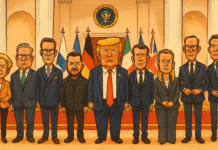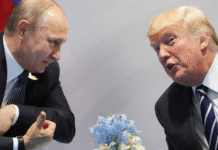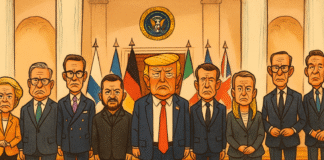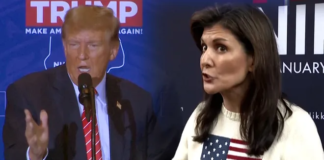
|
Getting your Trinity Audio player ready...
|
Morality and justice are often presented as fixed, universal ideals—unchanging standards that guide human behavior and societal order. Yet, this notion is far from reality. In truth, concepts of right and wrong are fluid, shaped and reshaped by those who hold power at any given moment. Like a pendulum swinging with the influence of external forces, morality bends according to the desires, interests, and agendas of dominant individuals and groups. The understanding of what is “just” or “moral” is rarely neutral; it shifts depending on historical context, geography, and, crucially, the balance of power.
Those who wield power exercise tremendous influence over how societies define morality and justice. Their control extends beyond mere rhetoric—through strategic manipulation of media, legislation, cultural narratives, and economic structures, they frame public perception to serve their ends. Media dominance, for instance, allows powerful actors to curate the flow of information, deciding what stories are told and how they are framed. This control over information shapes collective consciousness, making certain views appear self-evident or “common sense,” even when they primarily benefit a privileged few.

Similarly, legislative influence enables those in power to craft laws that reflect their interests under the cloak of fairness or morality. Policies are often presented as upholding justice, but they frequently consolidate existing hierarchies, preserving the status quo rather than challenging inequities. Cultural narratives, too, are weaponized—dominant groups disseminate stories and values that normalize their worldview, presenting their morality as universal truth. These narratives permeate education, religion, and social norms, embedding power structures in everyday life. Economic leverage adds another layer: by controlling resources and wealth, powerful elites dictate the conditions under which debates occur and whose voices gain prominence or are drowned out.
Together, these tools create a tightly woven fabric that sustains existing power relations. They manufacture a sense of normalcy around dominant moral frameworks, making alternative perspectives seem radical or illegitimate. Institutions—whether courts, governments, or educational systems—often act as enforcers of this constructed morality, legitimizing power through legal and bureaucratic means. Moreover, dissenting voices are frequently marginalized or silenced altogether, ensuring that challenges to the dominant moral order remain fragmented or weak.
But this dynamic is not immutable. The shifting nature of morality means that power over its definition can be contested. The path to a more equitable understanding of justice lies in dismantling the mechanisms through which power shapes morality. Central to this struggle is the cultivation of critical thinking and media literacy, empowering individuals to question and dissect the narratives fed to them. When people learn to identify bias and manipulation, the veneer of inevitability around dominant moral codes begins to crack.
Equally important is the creation and amplification of alternative narratives—stories that challenge prevailing assumptions and highlight marginalized perspectives. These counter-narratives disrupt the dominance of established discourse, offering fresh visions of justice that resonate with broader experiences and realities. Grassroots organizing plays a vital role in this process, as communities come together to advocate for change from the ground up, exerting pressure on institutions and those in power.
Institutional reform, transparency, and accountability are also necessary to break the cycle of power shaping morality for narrow interests. When legal and political systems become more inclusive and responsive, they can better serve the collective good rather than entrench existing inequalities.
Ultimately, challenging the power dynamics behind morality and justice demands persistent collective effort. It requires a commitment to questioning dominant frameworks, fostering inclusive dialogue, and mobilizing communities. Only through these sustained efforts can societies move toward a moral and just order that reflects the interests and dignity of all people, rather than the ambitions of the few.
This is an opinion column. The views expressed are those of the author and do not necessarily reflect the official editorial position of Danchima News.



















**mitolyn reviews**
Mitolyn is a carefully developed, plant-based formula created to help support metabolic efficiency and encourage healthy, lasting weight management.